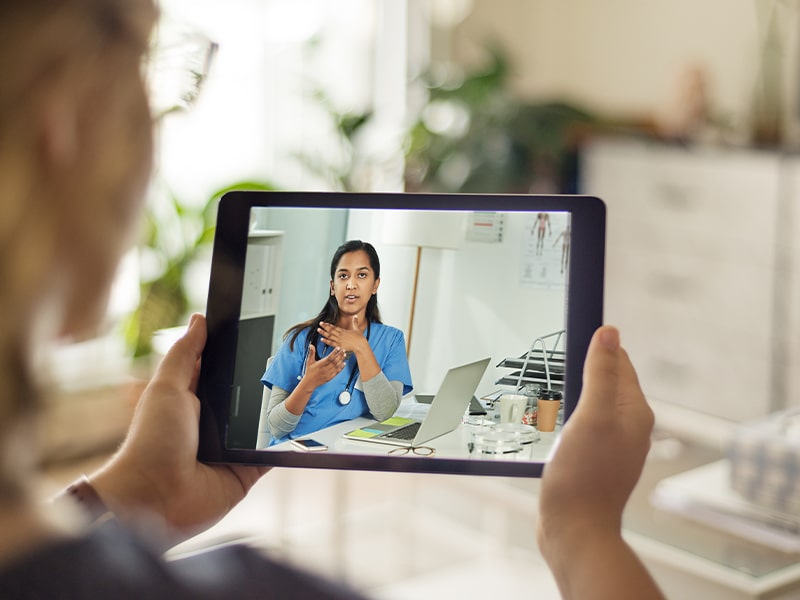Visiting your doctor virtually is convenient, and in many circumstances, it may the safest way to seek routine medical care in the age of COVID-19. But when you aren’t face-to-face in the same room as your physician, clear communication is more important than ever.
Your doctor may be the medical expert, but you are the expert when it comes to your body and healthcare preferences. So, now more than ever, it’s vital to be your own patient advocate.
Denise A. Johnson, MD, a family physician on the medical staff at Methodist Richardson Medical Center, has five ways to get the most out of your next (or maybe first!) telemedicine visit:
How to advocate for yourself remotely
1. Do research.
If you’ve been diagnosed with a health condition, educate yourself about your disease. Learn what you can from reliable sources, such as the U.S. National Library of Medicine or the Centers for Disease Control and Prevention. You can use what you’ve learned to guide the conversation with your doctor.
“Look for evidence-based information,” Dr. Johnson advises. “You can also use known health systems’ websites, such as MethodistHealthSystem.org to build your knowledge.”
2. Keep a list.
Keep an up-to-date list of all the medications you’re taking, including names and dosages.
“If you have diabetes, have recent home glucose readings available,” Dr. Johnson says. “If you have high blood pressure, have blood pressure readings available. Consider checking your temperature and weight, as well.”
3. Know your digital preferences.
When you schedule a virtual appointment through Methodist NOW or another telemedicine service, the support staff can help by asking you a series of questions to determine which teleconferencing app or platform is most familiar to you. If you’re uncertain about new software, it might help to have a trusted friend or relative help you set it up, Dr. Johnson says.
4. Ask questions.
It is your right and responsibility to be informed about all aspects of your medical care. If you are unsure about any treatment, medication, or recommendation, ask your doctor to clarify. “Consider having your questions written ahead of time,” Dr. Johnson says.
5. Keep your own records.
Even a brief appointment with your doctor can involve a lot of information. Keeping your own records of conversations and instructions helps eliminate confusion later.
Ultimately, Dr. Johnson says, telemedicine is an innovative way to approach healthcare.
“Patients will receive the same competent and compassionate care, just without the hands-on physical exam of a face-to-face clinical experience,” she says. “Primary and specialty care are at your fingertips in the comfort of your home.”
Telemedicine may be convenient, but it’s not the right call for emergencies. Read more about when it’s vital to get to the hospital ASAP.
Healthcare gets more difficult to manage as we age, with more doctor’s appointments to schedule and more medications to take. Smart speakers and other voice-controlled technologies can lend a (socially distant) helping hand. Use a smart speaker to set medication reminders, make and track appointments with doctors, and schedule exercises and other activities. Other electronic tools that can help you manage your health better include apps that track your health status, access your electronic medical records, or arrange video visits with your doctor.HIGH-TECH HEALTH

